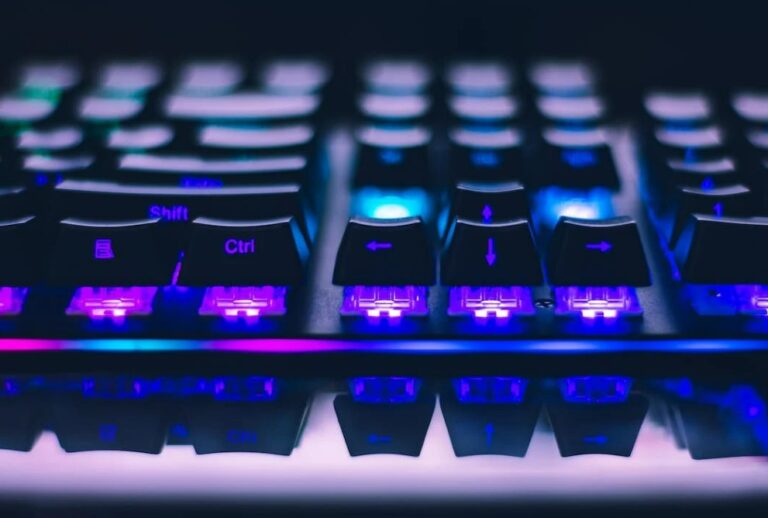ChatGPT, a tool powered by AI, is changing how we work. Born in November 2022, it can now perform tasks that were once human-exclusive. It can write everything from cover letters and blogs to emails with ease. Businesses are also using it for many jobs.
But it’s not just writing. ChatGPT can work in customer service, coding, and technical writing. This broad skill set has raised concerns. People worry that they might lose their jobs to this powerful tool.
The big question is – will ChatGPT take over jobs soon, or will humans keep their roles? Let’s dive in and explore.
Table of Contents
Jobs that ChatGPT can replace soon
Let’s explore potential jobs ChatGPT may replace:
1. Computer programmer
Believe it or not, ChatGPT codes. It spots and corrects human errors. Tech jobs like web development, coding, and data science face an AI takeover. While human-coded programs are precise, they’re time-consuming. ChatGPT codes faster, cutting manpower. It excels in creating basic data structures, algorithms, and machine-learning tasks. Despite this, humans should continue coding, using ChatGPT as a check, to keep the learning process alive.
2. Technical writer
ChatGPT shines in writing, including technical writing. It can craft specialized content, offer suggestions when you’re stuck, and spark ideas. It can research and write new articles, simplifying complex topics. From coding principles to scientific concepts, it makes understanding easy.
3. Data analyst
Data analysts, key industry players plan financial strategies based on customer and market behaviors. Today, ChatGPT joins the analytics field, providing quick insights and precise data. With its accuracy and efficiency, it’s stepping into data analysts’ shoes. AI offers accurate figures, eliminating human errors and increasing its reliability.
4. Graphic designers
In 2021, OpenAI introduced DALL-E, a tool that crafts custom images from user prompts. This tool’s existence has sent shockwaves among graphic designers, threatening their roles. But it’s not all smooth sailing. AI-produced images can lead to copyright issues, causing legal hassles for the parent company. On the creativity front, humans still hold the upper hand with their unique thought processes.
5. Copywriting/Email writing
Conventionally, copywriting is seen as a human forte, as AI cannot infuse originality or uniqueness. However, ChatGPT can produce high-quality content swiftly, putting copywriters’ jobs at risk. Similarly, it can draft professional emails in seconds. However, crafting catchy ad copies or emotive emails often requires a human touch. This limitation could secure the jobs of creative writers fearful of AI takeover.
6. Legal assistants
Surprisingly, ChatGPT can play a role in legal assistance. A recent case saw an AI model armed with extensive legal knowledge represent in court. This opens up possibilities for those unable to afford hefty lawyer fees. Even more astonishing, a ChatGPT bot passed a law school exam with impressive grades. But the question persists, “Can chatbots really defend humans in court?”
7. Market analyst
ChatGPT’s abilities include market analysis. It conducts market research, guides companies, and identifies trends. Marketers use this data for daily operations and profit strategies. Companies now utilize ChatGPT for data collection, trend identification, and designing marketing campaigns. It won’t be surprising to see ChatGPT soon taking over market analyst jobs.
8. Financial advisors
Finance-related jobs, such as financial analysts and advisors, face an AI threat. AI offers vast numeric data promptly. Its ability to identify and forecast market trends puts it in competition with financial advisors. Many companies favor ChatGPT over humans, seeing a chance to save on high salaries.
9. Customer Service Agents
Chatbots already handle many customer service roles. Companies use answering machines and ChatGPT to streamline this. Research in 2022 predicted chatbots as the primary channel for customer service. However, while chatbots manage simple queries well, complex issues still need human intervention.
10. Proofreader
Proofreading might also see a ChatGPT takeover. While it can spot grammatical errors and make minor corrections, the tech abilities are limited. It struggles with comprehensive paragraph or article correction and fails to provide detailed feedback like a human. It often misunderstands sentence meaning or emotion, leading to incorrect edits.
ChatGPT will revolutionize how we work
In the tech-driven era, ChatGPT looms large, promising to transform how we work. While it offers efficiency and precision, humans still hold the edge in creativity and complex decision-making. It’s crucial to see AI as a tool, a complement rather than a replacement.
The balance of AI and human collaboration is the path forward. While AI, like ChatGPT, may take over some tasks, human intelligence and creativity remain irreplaceable. So, let’s embrace this change, leveraging AI’s strengths while nurturing our uniquely human abilities.












